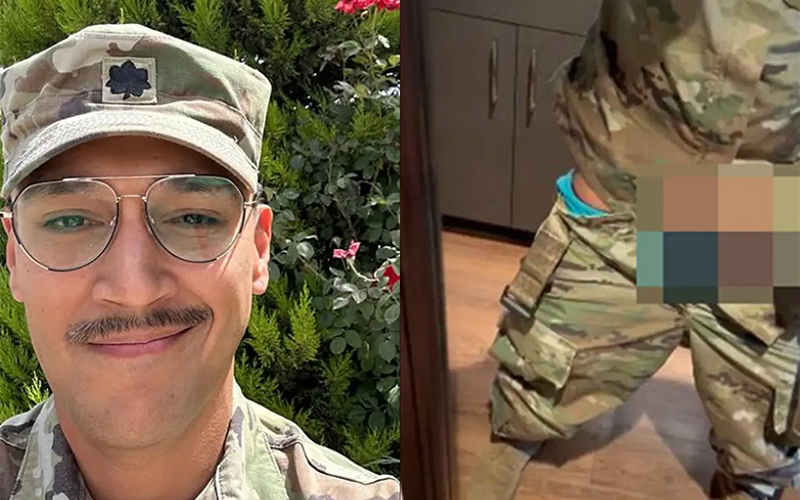White House Objects to DADT Amendment
House language seeks more impediments to DADT repeal; other amendments seek to ban legal gay marriages at military facilities
The White House is expressing ”serious objections” this evening to an amendment approved by the House Armed Services Committee (HASC) on May 11 that would add another step to the process laid out in the Don’t Ask, Don’t Tell Repeal Act for ending the military’s ban on openly gay, lesbian and bisexual service.
The amendment to the National Defense Authorization Act (NDAA), proposed by Rep. Duncan Hunter (R-Calif.) and approved on a 33-27 vote, expands the required certification process for repeal to include the sign-off of the service branch chiefs of the Army, Navy, Marine Corps and Air Force.

Duncan Hunter
White House spokesman Shin Inouye, responding to a request from Metro Weekly about President Barack Obama’s position on Hunter’s amendment, wrote, ”The President is working with the Secretary of Defense and the Chairman of the Joint Chiefs to certify, pursuant to the repeal bill, that implementation of the new policies and regulations written by the Department is consistent with the standards of military readiness, military effectiveness, unit cohesion, and recruiting and retention of the Armed Forces.”
He added, ”We have serious objections to any amendment that would unnecessarily delay this process.”
Although two Republicans on the committee voted against the amendment – Reps. Todd Russell Platts (R-Pa.) and Chris Gibson (R-N.Y.) – one Democrat – Rep. Mike McIntyre (D-N.C.) – voted for the change. Rep. Mike Turner (R-Ohio) did not vote on the amendment.
On a 60-1 vote taken early in the morning of May 12, the House Armed Services Committee ended the marathon session that had begun a little past 10 a.m. the previous day by sending the NDAA – with Hunter’s amendment and two others that were opposed by LGBT equality organizations – to the full House for consideration.
Although the Republican-controlled House would appear likely to pass the NDAA with the amendments included when it considers the bill as soon as the week of May 23, it is unlikely that the Democratic-controlled Senate would include Hunter’s amendment in its version of the NDAA – particularly in light of the fact that, when asked in December 2010, none of the service chiefs said such an amendment was necessary.
Moreover, the timing of when the NDAA would be passed by both chambers, have differences worked out in the conference committee and be sent to the president for his signature or veto make it highly likely – even if Hunter’s amendment was included and the president signed it – that the provision would be moot by time it became law given the timeline for certification that has been expressed by military officials.
On April 1, testifying before the House Armed Services Military Personnel Subcommittee, Undersecretary of Defense for Personnel and Readiness Clifford Stanley had laid out a plan that he suggested could end DADT by September – although he would not give a specific date.
Stanley said at the time that he ”anticipate[s] the training will be completed by this summer.” At that time, Pentagon officials detailed that about 9 percent – or 200,000 – of servicemembers had been trained. The director of the Joint Staff, Vice Adm. William Gortney, later clarified, ”We anticipate about mid-summer … to get the recommendations from the service chiefs to the chairman.”
Assuming that certification happens at that time, the 60-day congressional review period required under the law would start and, at the conclusion of that period, the DADT law – 10 U.S.C. 654 – would be repealed.
Although Hunter’s amendment – especially in light of today’s criticism from the White House – appears unlikely to be a part of the final bill or, at least, likely to be made irrelevant by final DADT repeal happening before the amendment could become law, the fate of two other amendments is less clear at this early point in the NDAA congressional process.
An amendment proposed by Rep. Vicky Hartzler (R-Mo.) and approved on a 39-22 vote ”reaffirms the policy of section 3 of the Defense of Marriage Act.” The amendment – made applicable to the NDAA by referencing Department of Defense rules and regulations, as well as DOD employees – also repeats section 3’s policy of defining ”marriage” and ”spouse” as relating only to opposite-sex marriages.
Much of the discussion of the amendment focused on opposition to the Feb. 23 decision by the Department of Justice to stop its legal defense of section 3 of DOMA in pending court challenges.
McIntyre again voted ”yes” on the amendment, along with three other Democrats – Reps. Silvestre Reyes (Texas) and Larry Kissell (N.C.) and Del. Madeleine Bordallo (Guam). All Republicans supported the measure.
Another amendment, offered by Rep. Todd Akin (R-Mo.) and approved on a 38-23 vote, goes a step farther than Hartzler’s amendment by expanding upon the current restrictions of DOMA. Akin’s amendment prohibits weddings from taking place on military installations – such as bases – or other Department of Defense property if they don’t comply with DOMA. It also prohibits chaplains or other DOD employees from performing non-DOMA-complaint marriages while ”acting in an official capacity.”
The amendment, which effectively bans same-sex marriages from being performed at military bases or by military employees, was a response to a Navy memorandum released earlier in the week, which detailed legal guidance that such weddings, where legal under state law, could be performed on military property.
With the vote on Akin’s amendment, McIntyre made it a trifecta, supporting the amendment along with fellow Democrats Kissell and Rep. Mark Critz (Pa.). As with the Hartzler amendment, all Republicans on the committee voted ”yes.”
Although asked to comment on all three amendments, the White House’s response referenced only its objection to amendments that would delay the DADT repeal process – something that neither Hartzler nor Akin’s amendments would appear to do.
Support Metro Weekly’s Journalism
These are challenging times for news organizations. And yet it’s crucial we stay active and provide vital resources and information to both our local readers and the world. So won’t you please take a moment and consider supporting Metro Weekly with a membership? For as little as $5 a month, you can help ensure Metro Weekly magazine and MetroWeekly.com remain free, viable resources as we provide the best, most diverse, culturally-resonant LGBTQ coverage in both the D.C. region and around the world. Memberships come with exclusive perks and discounts, your own personal digital delivery of each week’s magazine (and an archive), access to our Member's Lounge when it launches this fall, and exclusive members-only items like Metro Weekly Membership Mugs and Tote Bags! Check out all our membership levels here and please join us today!
























